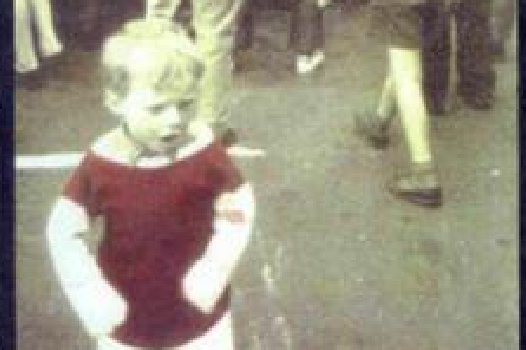Part One: A Blog by Damian McGeady
Donegal Memories
Until recently, I thought that I had read the greatest legal paragraph ever written in my first week as a law undergraduate. I know that it’s a bit niche, but please do bear with me. It was written by Lord Denning. That was in 1993. Sam Maguire was sitting behind a bar in Maghera at the time, well-oiled in his first week in Derry. I had spent the summer driving and dreaming. Driving a TNT liveried van around every back road in Donegal, dreaming of Croke Park on the third Sunday in September. I was listening too. To every ball of the 1993 Ashes series. Not that I had been a fan of Cricket before then. The FM signal in Donegal was patchy. The one constant was Long Wave. And so, it was for me a summer of BBC Test Match Special on the World Service.
Old Trafford (Not That One)
Do you remember Shane Warne’s Ball of the Century? I do. I was in a Ford Transit van driving from Gweedore to Letterkenny. I had just passed the foot of Errigal, there passed McGeady’s Pub at the rise above the Poisoned Glen. The Sky was cloudless. It was his first Ashes ball. And I heard it, live. I was hooked. Until then, I didn’t get cricket.
Lord Denning did. He got cricket. Weeks later, with the ink barely dry on my USIT card, I read the opening of his judgement in the case of Miller v Jackson.
Early Influences: Sports Writing
I was a fan of good sports writing. I had devoured Paul Kimmage’s Rough Ride that summer. Earlier in the year I had read Nick Hornby’s Fever Pitch. On Sundays it was Brian Glanville and Hugh McIllvaney in the broadsheets. Then there was Denning’s Miller v Jackson opening paragraph.
County Durham: Denning on Village Cricket
“In summertime village cricket is the delight of everyone. Nearly every village has its own cricket field where the young men play and the old men watch. In the village of Lintz in County Durham they have their own ground, where they have played these last seventy years. They tend it well. The wicket area is well rolled and mown. The outfield is kept short. It has a good club-house for the players and seats for the onlookers. The village team play there on Saturdays and Sundays. They belong to a league, competing with the neighbouring villages. On other evenings after work they practice while the light lasts. Yet now after these 70 years a Judge of the High Court has ordered that they must not play there anymore…”
Denning’s whimsical piece is a joy of sporting and legal literature. He got cricket the way John Woodcock got cricket. On his death, Woodcock was hailed the poet laureate of cricket writers.
New York: Roger Angell and Baseball
Roger Angell might be described as the poet laureate of Baseball. In 2014, Sports Illustrated called him the greatest baseball writer in America. He wrote regular essays in The New Yorker. In doing so, it quoted his 1975 piece, Agincourt and After, where he described:
“The infantile and ignoble joy that sends a grown man or woman to dancing and shouting with joy in the middle of the night over the haphazardous flight of a distant ball—seems a small price to pay for such a gift.”
Dublin: Mr Justice Declan Budd and Irish Baseball Writing
Mr Justice Declan Budd could have given Angell a run for his money. The Irish High Court Judge retired in 2011 after 20 years on the bench. It was only recently that I became aware of his judgement in the 1999 case of Kane v Kennedy, which I happened upon by accident.
“The news of the death of Joe DiMaggio came while I was writing this judgment. His record streak in 1941, when he got a hit in fifty-six consecutive games, still stands. His grace at the plate and his defensive qualities at centre field, his leadership of the New York Yankees to victory in nine of the ten world series in which he led them, and above all his gentlemanly conduct made him a legend in his own lifetime. I wonder what he would have made of the problems with which I have been confronted in resolving the conflicts of evidence presented by what followed the strike by Alice Dunne during the game of rounders played in the sports hall of a convent school in Glasnevin on the morning of Tuesday 21st May 1996.”
I read it again. And again.
Looking Ahead: Part Two
In Part Two, we explore further Mr Justice Budd’s judgement and other Irish judicial references to sport.








